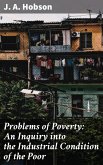In "Homes of the London Poor," Octavia Hill presents a poignant and meticulous exploration of the living conditions faced by the urban poor in Victorian London. Utilizing a combination of firsthand accounts and sociological observations, Hill employs a narrative style that is both compassionate and unflinching, bringing to light the stark realities of poverty, overcrowding, and inadequate housing. This work is situated within the broader context of the social reform movements of the late 19th century, which aimed to alleviate the suffering of the working class and improve their living standards, creating a stirring plea for social justice amidst the burgeoning industrial landscape. Octavia Hill, a pioneering social reformer and co-founder of the National Trust, was deeply influenced by her experiences working with the impoverished in London. Her profound empathy, coupled with her commitment to philanthropy, propelled her to address the urgent need for better housing and dignified living conditions. Hill's insights into the plight of the urban poor were informed by her background in social work, and she often drew inspiration from her interactions with those she sought to help. "Homes of the London Poor" is an essential read for anyone interested in social justice, urban studies, and the historical context of housing reform. Hill's impassioned narrative not only sheds light on the struggles of the impoverished but invites readers to reflect on the societal responsibilities that govern urban life, making it a timeless and relevant exploration of humanity's share in the solution.
Dieser Download kann aus rechtlichen Gründen nur mit Rechnungsadresse in A, B, BG, CY, CZ, D, DK, EW, E, FIN, F, GR, H, IRL, I, LT, L, LR, M, NL, PL, P, R, S, SLO, SK ausgeliefert werden.









